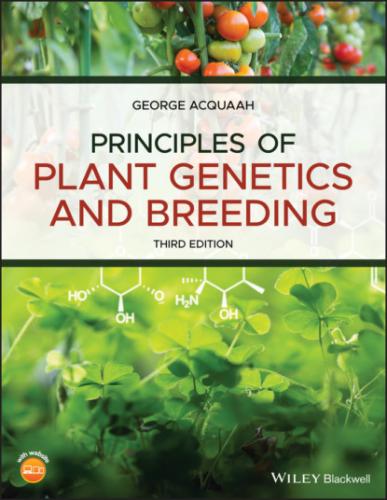9
Section 4: Germplasm for breeding
8 Variation: types, origin, and scale
8.1 Classifying plants
8.2 Rules of classification of plants
8.3 Operational classification systems
8.4 Types of variation among plants
8.5 Origins of genetic variability
8.6 Biotechnology for creating genetic variability
8.7 Scale of variability
Key references and suggested reading
Outcomes assessment
9 Plant domestication
9.1 The concept of evolution
9.2 What is domestication?
9.3 Evolution versus domestication
9.4 Conscious selection versus unconscious selection
9.5 Patterns of plant domestication
9.6 Centers of plant domestication
9.7 Roll call of domesticated plants
9.8 Changes accompanying domestication
9.9 Genetic bottleneck
9.10 Tempo of domestication
9.11 Genetic architecture and domestication
9.12 Models of domestication
9.13 Modern breeding is a continuation of the domestication process
Key
| Автор: | George Acquaah |
| Издательство: | John Wiley & Sons Limited |
| Серия: | |
| Жанр произведения: | Биология |
| Год издания: | 0 |
| isbn: | 9781119626695 |
